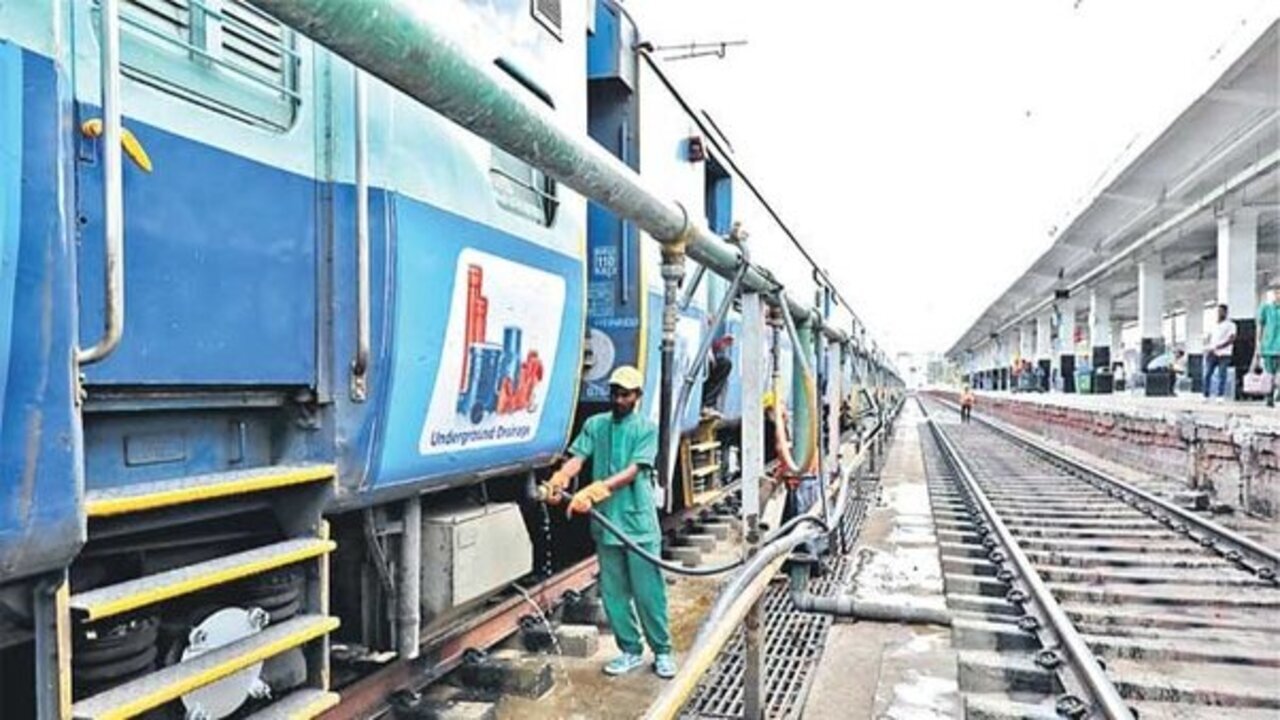CR’s laundry in Nagpur washes four tonnes of linen a day in an eco-friendly manner
The laundry, which started in the month of July last year, has a capacity of around eight tonnes per day. Currently, it is operating at around 50% capacity.
Nagpur: Built, Own, Operate, and Transfer (BOOT) Laundry at Ajni, Nagpur Division of Central Railway, is a unique unit in Central India. Which has been rated by the Indian Green Building Council under the Green Factory Building category. Presently catering well to the linen requirement of around 10 trains including Nagpur-Mumbai-Nagpur Duronto Express, In which this facility was started once again last week without any additional cost. Maintenance of these 10 trains is mainly done at Nagpur.

The laundry, which started in the month of July last year, has a capacity of around eight tonnes per day. Currently, it is operating at around 50% capacity.
Till last week, the laundry was washing around 4,500 bedsheets per day. With the introduction of free linen service at Duronto, the load has now increased to 3,500–4,000 linens per trip.
The Laundry has well adopted the eco-friendly work culture under the Divisional Regional Manager (DRM), Nagpur Division, Richa Khare. Developed and managed by a Hyderabad-based private firm, the laundry has broken the system where railways used to depend solely on vendors to get linen washed and ironed.
About 25% of the greenery is maintained at the laundry site
In addition to the infrastructure already built on railway land, The laundry has earned special recognition for the measures it has taken to reduce its carbon footprint, from the installation of a steam condensate unit to the use of biomass briquettes.
Sources also say that the steam condensate unit traps residual steam from the ironers to pre-heat the water and pump it into the boiler. A source said, “This helped in reducing the time taken for steam generation and saved fuel.” adding that laundry also has solar energy harvesting to reduce reliance on conventional electricity during the day.
Biomass briquettes made from agricultural and industrial waste have also replaced wood, diesel, and charcoal-based fuels and shown significant reductions in carbon emissions.
According to a senior railway official, about 25% of the greenery is maintained at the laundry site, which also has a rainwater harvesting system.
The laundry, which includes two industrial dryers and two flat workers, folders, and feeders apart from five washers and extractors, has implemented yet another initiative through Corporate Social Responsibility (CSR) activity. “The laundry has a lot of tribal art and Warli paintings,” said a source.





